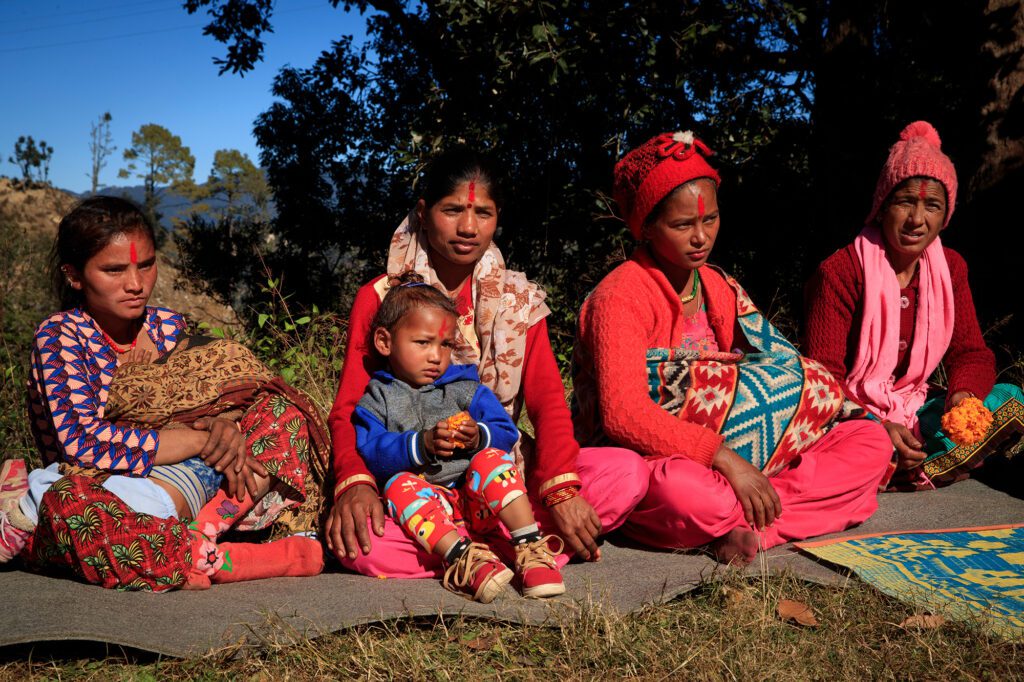The World’s Children Need Us Now More Than Ever
UPDATE 02/27/2025: Last night, we received termination notices for all of Helen Keller’s US government-funded projects. This means children suffering from malnutrition, like Umesh, have little hope of treatment or recovery. Community health workers like Patrice have been stripped of their right to deliver lifesaving medications to their neighbors.
Today, children and families face grave danger. As the United States reconsiders its foreign assistance, tens of millions of children and family members whom Helen Keller Intl serves have lost access to critical health services. Our team estimates that 121 million children and family members in the countries we support are now at dire risk.
Here is what we have seen in the communities that we serve:
- In Nigeria, a child suffering from malnutrition is not getting the treatment he needs to recover, putting him at immediate risk of death from preventable causes.
- In Nepal, a pregnant mother preparing for birth no longer has access to essential maternal health services to ensure a safe pregnancy, putting her and her child at immediate risk of disease and death.
- In Bangladesh, a farmer preparing for a new growing season now won’t have the seeds or tools needed for a successful harvest, meaning her family will be forced to purchase increasingly expensive nutritious foods, or go without.
- In Sierra Leone, whole villages have been cut off from essential medicine and face the potential of contracting blinding and debilitating neglected tropical diseases.
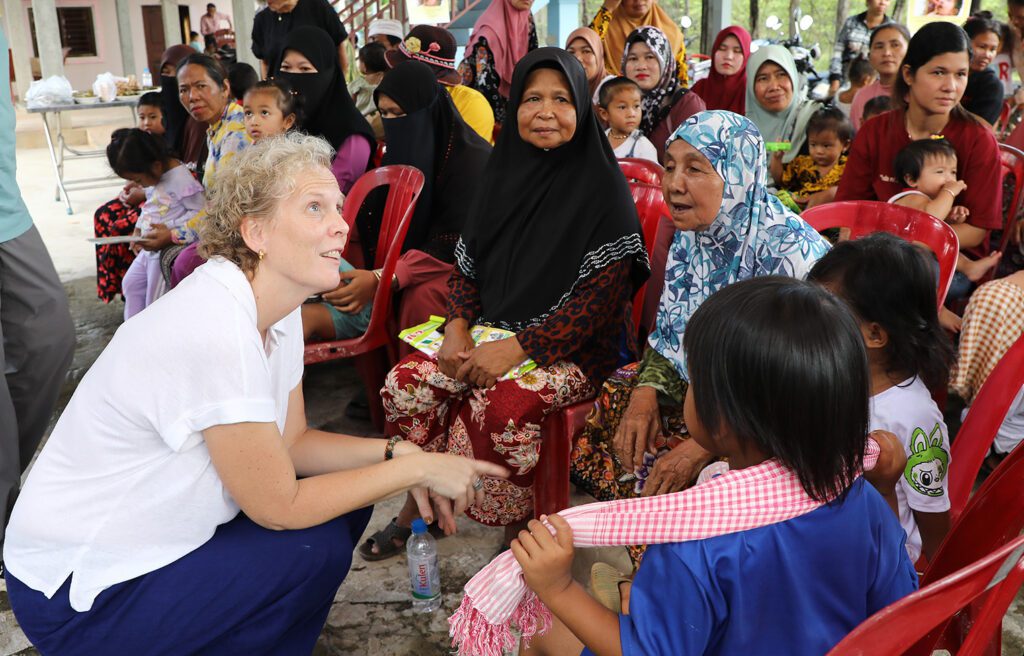
As President and CEO of Helen Keller – and as a mother – I am heartbroken about what children and families face. I know that mothers are doing everything possible to keep their children healthy and safe, even if that means sacrificing their own well-being. I would be doing the same thing if my girls were suddenly without medicine or treatment for malnutrition. No mother should ever be forced to make such choices.
The Biggest Malnutrition Crisis in a Generation
Every 11 seconds a child dies from malnutrition. In the early 2000s, we were making huge strides against malnutrition, but that progress had been stalled because of the combined impact of climate crises, ongoing conflict, and the pandemic aftermath. Tools like the delivery of essential vitamins and nutrients, climate-smart agriculture, and screening and treatment of malnutrition have the power to severely reduce malnutrition, but suspended funding threatens our progress.
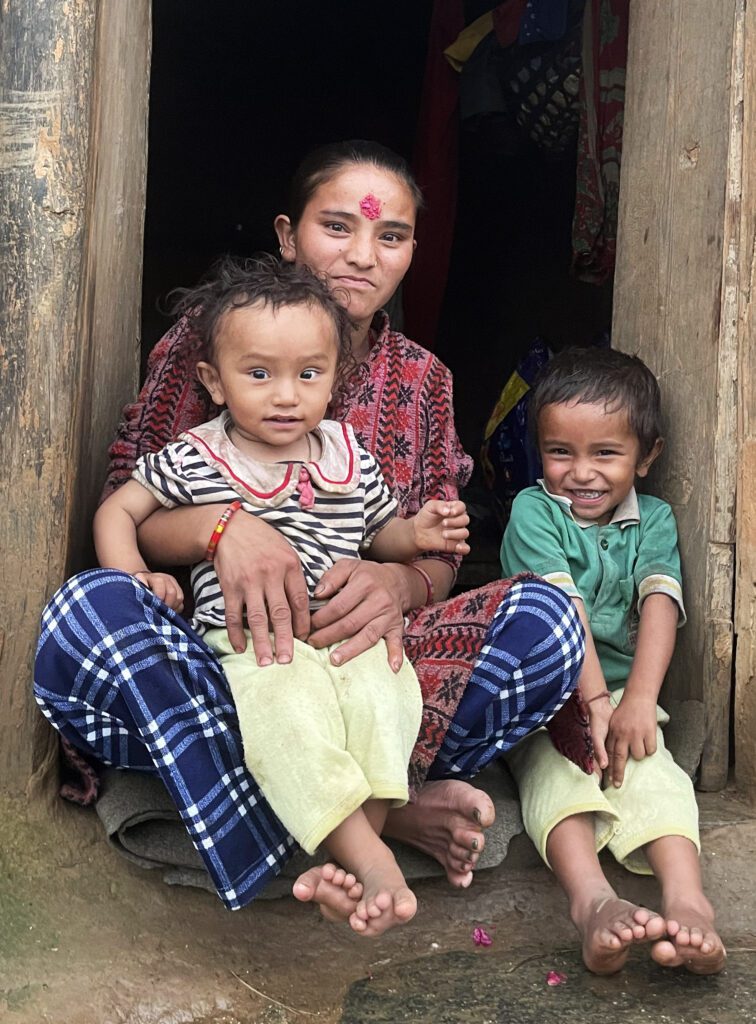
Last year, when Parbati Khatri and her two-year-old son, Umesh, attended a mothers’ health group meeting, one of Helen Keller’s frontline nutrition workers noticed how thin they both were. At the health facility in their community in Nepal’s far western Doti district, Umesh and Parbati, who was then six months pregnant, were both diagnosed with malnutrition. The swift provision of ready-to-use therapeutic food, a nutritional paste, along with nutrition counseling, was essential to their recovery. Three months later, Umesh and his mother both recovered, and Parbati gave birth to a healthy baby, Manoj. “I am glad that my child and I received timely support,” she told us.
Parbati, Umesh, and Manoj’s story is one of optimism, but with so many programs on pause, the fate of children like Umesh and Manoj is now unclear. In places like Nepal, Bangladesh, and Nigeria, children suffering from malnutrition might not be reached in time. Nearly 21 million people – including more than 11 million children – are at immediate risk because of halted lifesaving nutrition and healthcare support. Without urgent support, these children risk a lifetime of stunting, developmental, and cognitive delays – even death. A whole generation is at risk.
Decades of Disease Elimination Reversed in an Instant
Today, more than a billion people around the world suffer from at least one neglected tropical disease. These diseases – including trachoma, lymphatic filariasis, schistosomiasis, river blindness, and intestinal worms – are a group of mainly parasitic and bacterial diseases that can cause a host of disabling conditions, painful physical deformities, social stigma, and lost economic opportunities. Since the 1950s, Helen Keller and other partners have helped communities control and treat these diseases, with many now on the brink of elimination. A pause in this critical work will not only halt progress; families will face renewed risks.
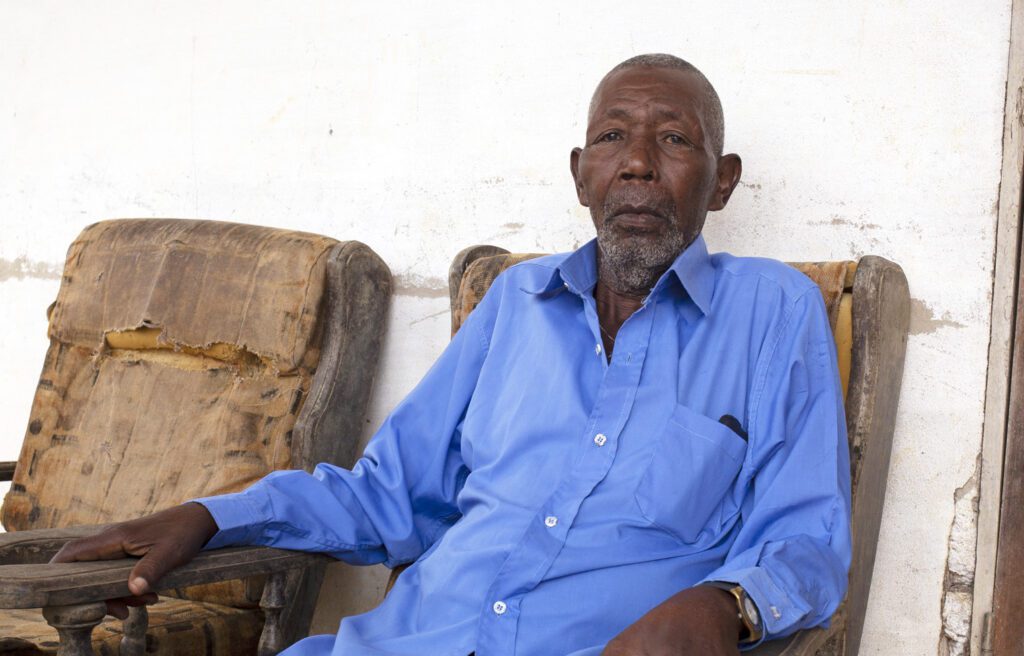
In Cameroon, a country grappling with funding pauses, Patrice Messolo has worked alongside other community health heroes for more than 20 years to distribute lifesaving medication that treats and prevents neglected tropical diseases. He understands the impact of these diseases firsthand. As a boy, Patrice watched his grandfather and uncle lose their vision. They developed painful skin lesions due to what Patrice would later learn was onchocerciasis, also known as river blindness. Young Patrice was lucky and received the right medicine at the right time. He grew up to join the national health service, where he delivered these critical medicines for millions more. Until the recent pauses in funding, he was helping his neighbors get the very same care that has kept him safe.
Community health heroes like Patrice provide millions of people – often their neighbors and closest communities – with lifesaving health support and medicines. But the suspension of US funding now means that this essential work is on pause. Even temporarily suspending mass drug administration means millions of people in vulnerable communities will miss life-saving treatments. These diseases don’t pause – every missed round of mass drug distribution allows them to spread, increasing suffering and disabling pain. Currently 100 million people across six African countries that Helen Keller serves are now at risk.
Our Work Together is More Important Than Ever
Today, children and families need us more than ever. As Helen once said, “I believe that the welfare of each is bound up in the welfare of all.” At Helen Keller Intl, we draw purpose and strength from our founder, and we are committed to doing everything in our power to support children and families.
We are fighting for the lives and well-being of our communities. We are in Washington, DC, speaking with elected officials to help them understand the full impact of funding pauses. We are rallying together with like-minded partners who don’t want to turn away from children and families. We are speaking with journalists to put a face to those bearing the brunt of US government funding pauses and cuts. And we are working around the clock to invite new donors and trusted friends to act with courage and generosity.
And we can’t do it alone.
There are three actions we can take that will have the most impact on people’s future – helping them overcome illness and blindness and lead healthy lives filled with potential:
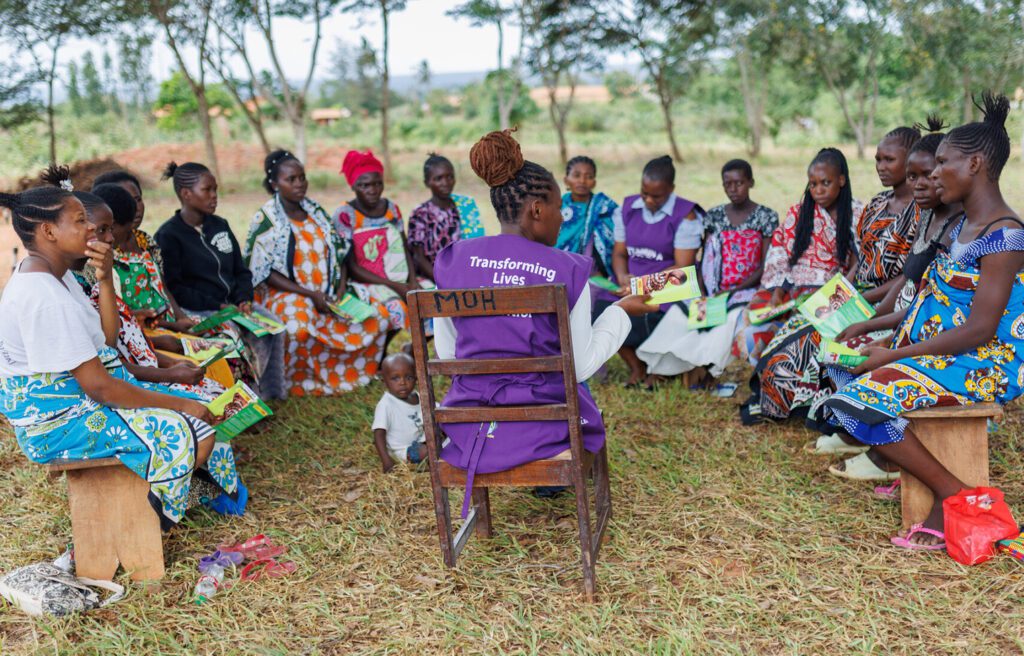
- Together, we can ramp up our malnutrition diagnosis and treatment as well as other lifesaving nutrition actions – because with US cuts and pauses, the world’s children will experience an increase in rates of malnutrition.
- Together, we can provide more vitamin A – because children’s immune systems and vision will be under even more pressure with US government cutting off support for kids and moms.
- Together, we can restart the distribution of drugs that prevent and treat blinding and disabling diseases in the 6 countries where the US has forced us to pause – because communities have worked too hard for these diseases to resurge.
We are asking you to stand with us.
With your generosity, we will continue to support children and families so that they can weather this turbulent time. May we step into this moment together with generosity and compassion, as Helen would have.

